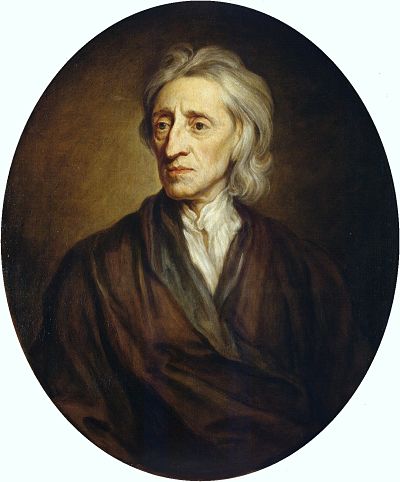 America exists because of John Locke. There are reasons, of course, but this Republic
America exists because of John Locke. There are reasons, of course, but this Republic
owes the larger part of the ideas behind it to the English philosopher. The Founders
depended so much on Locke’s ideas and philosophic vocabulary that it is almost
more interesting to note where they deviated from him than where they agreed
with him. When the Declaration says that “we hold these truths to be self-evident”
and that humans have a right to “life, liberty, and pursuit of happiness” they were
channeling Locke.
Understanding Locke goes a long ways in answering the popular question, “Is
America a Christian nation?”
If by that one means that United States is Christendom, then answer is “of course
not.” Christendom is bigger than any particular nation or people. If it means that
only Christians (in some strong sense of the term) formed this nation, then the
answer is “don’t be ridiculous.” The Byzantine Empire, as overtly Christian a state as
has ever existed, could not claim this. The Founders of the United States created a
nation that assumed a Christian majority, but did not demand that individuals be
Christian.
In two ways, Christianity is essential to understanding America. The vast majority of
the population has always been Christian, so in that sense it has always been a
nation of Christians. Second, the founding philosopher of America, John Locke, was
very much a Christian. John Locke’s language is permeated with the Bible, his
arguments assume the truth of the Gospel, and the he supports Christian ethics. He
engaged in Christian apologetics, was intent of showing his Anglican bishop his
ideas were orthodox, and quoted the Bible continuously. Locke depends on Biblical
history to make his case. He simply assumes that the population of England is
Christian in his political work and could defend the right to revolution based on that
idea.
The “Second Treatise on Government” implies to the not-even-careful reader that
there must be a “First Treatise.” This earlier work by Locke was a devastating
critique of the argument for an absolute monarch based mostly on Biblical history.
Locke is careful to show that nothing in the Bible or in Christianity denies humans
the right to revolt against a bad government or gives the king absolute power. Locke
finished off serious defense of “divine right” in the English-speaking world, showing
not only that philosophy can make progress, but that normal citizens can notice that
progress.
Of course, the fact that Locke meant to build a Christian political philosophy does
not mean he succeeded. Read Lock and ask yourself if he did? Or did he
inadvertently bring on the toxic secularism of our own time?
_____________________
A version of this appeared in my A Great Books Reader











